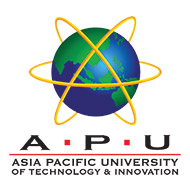
Bachelor of Engineering in Mechatronic Engineering with Honours
Offered by: Asia Pacific University of Technology & Innovation (APU)
Ask About This Course
| Exam Body | APU Malaysia Degree |
|---|---|
| Course Duration | 4 Years (8 Semesters) |
| Part Time/Full Time | Full Time |
| Fees | RM 107,400 |
| Fees (International Student) | RM 122,000 |
| Faculty | School of Engineering |
| Conducted entirely in Malaysia | Yes |
| Awarding Country | Malaysia |
| Level of Study | Bachelor's Degree Level |
| Field of Study | Engineering & Engineering Trades |
| Achievement | APU-DMU Dual Degree Scheme |
| Course Description | This programme is specifically designed to provide students with:
This programme is accredited by the Board of Engineers Malaysia (BEM). http:// www.bem.org.my/engineering-accreditation-council Programme Educational Objectives: Graduates of APU Bachelor of Engineering in their respective programs are expected within five years of graduation to attain the following programme educational objectives:
Mechatronic Engineering is concerned with the creation, design and building of intelligent machines. This new breed of engineer has to master skills in mechanical, electronic and computer engineering and work in a hybrid manner, meeting an ever-increasing need in industry where complexity of projects is rising and resources are limited. The main areas of activity are:
Programme Outcomes: The students, upon completion of their study, should attain the following outcomes:
Mechatronic Engineering vs Mechanical Engineering: |
| Curriculum | DEGREE LEVEL 1 Students will understand the basic principles of engineering in the areas of Circuit Analysis, Engineering Materials, Instrumentation & Measurement and Engineering Design. Other modules aim to provide the basic academic skills required to meet the demands of employers, as well as thorough grounding in principles of IT and management. Important and relevant skills for managing activities and for their own independent learning are also introduced. Common Modules
DEGREE LEVEL 2 Here, students start specialising in modules that develop the necessary underlying knowledge and skills in Mechatronic Engineering with modules such as Analogue Electronics, Digital Electronics, Introduction to Electrical Systems, Electromagnetic Field Theory, Engineering Software & Applications, Signals and Linear Systems,Strength of Materials, Robotics Technology and Sensor & Actuators. Engineering Mathematics is provided for the better understanding of the engineering modules. Common Modules
Specialised Modules
DEGREE LEVEL 3 Specialised knowledge and skills in the areas of Control Engineering, Communication Engineering Principles, Numerical Methods & Statistics, Microprocessor Systems & Embedded Software, Machine Design, Fluid Mechanics, PLC & Pneumatic System and Machine Vision & Intelligence are the critical focus of this level. This is a further development of the ability to apply relevant engineering skills with strong critical thinking and analysis. Independent learning continues in all modules. Common Modules
Specialised Modules
Elective Modules (choose 1)
INTERNSHIP (16 weeks) Students will undertake an Internship/Industrial Training for a minimum period of 16 weeks to prepare them for a smooth transition from the classroom to the working environment.
DEGREE LEVEL 4 The final year Engineering modules provide the necessary industry application and technological skills which become very useful for employment upon graduation. Students’ personal and professional development, technical capability and understanding of how to innovate, generate and manage the creation of new ideas will be enhanced. Students will deliver several Engineering Projects where they will demonstrate higher level critical thinking, analysis and solutions development skills which will enhance their employability. Common Modules
Specialised Modules
Elective Modules (choose 1)
MQA Compulsory Subjects *
(*All students are required to successfully complete these modules as stipulated by the Malaysian Qualification Agency) |
| Entry Requirements | DIRECT ENTRY TO LEVEL 1 OF THE DEGREE: STPM • 2 Passes in STPM with a minimum Grade C (GP 2.0) in Mathematics and Physics (or Chemistry), and a Credit in Mathematics and Physics (or Chemistry) at SPM Level or its equivalent.
A-LEVEL • 2 Passes in A-Level including Mathematics and Physics (or Chemistry), and a Credit in Mathematics and Physics (or Chemistry) at SPM/O-Level/ IGCSE or its equivalent.
UEC • 5 Grade B’s in UEC, including Mathematics and Physics (or Chemistry).
FOUNDATION/ MATRICULATION • Passed the relevant Foundation programme (minimum CGPA of 2.0) with a Credit in Mathematics and Physics (or Chemistry) at SPM/O-Level/IGCSE or equivalent.
Direct Entry to level 2 of the Degree: • Successful completion of the APU/APIIT Diploma or • Successful completion of studies in another recognised institute with academic credits equivalent to Level 1 of an Honours Degree (Subject to the approval of the APU/APIIT Academic Board)
English Requirements (International Students) • IELTS : 5.0 |
| Career Prospects | The Mechatronic Engineering course provides the technical and creative know-how needed to achieve the best possible engineering career path. Graduates are also sought after for management positions because of their broad skill base and knowledge of state-of-the-art technology. Careers span the range of fields which are normally covered by mechanical, electrical and computer engineering. Roles include designing consumer machines, industrial machines, robotics and automation for advanced manufacturing, robot control systems or aviation electronics, software and hardware development for real-time computer control systems among others.
|
All fees are in RM (Ringgit Malaysia) currency unless stated otherwise.
Other Courses in this Level of Study Other Courses in this Field of Study























